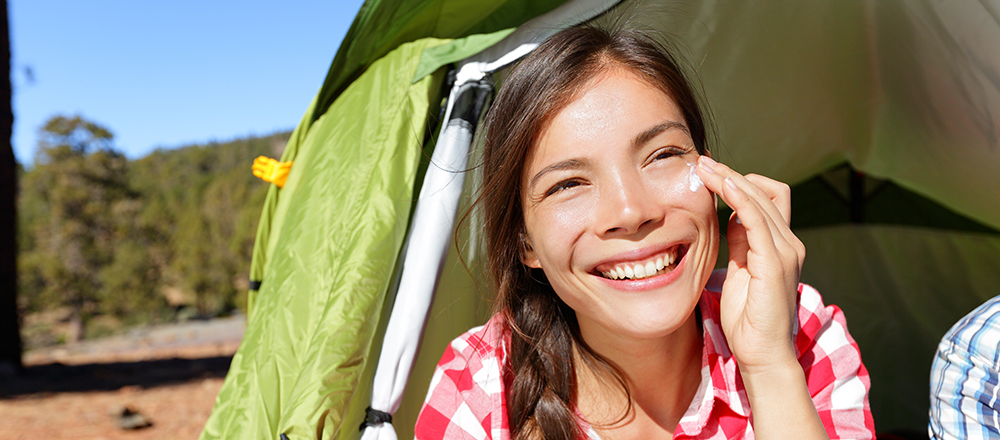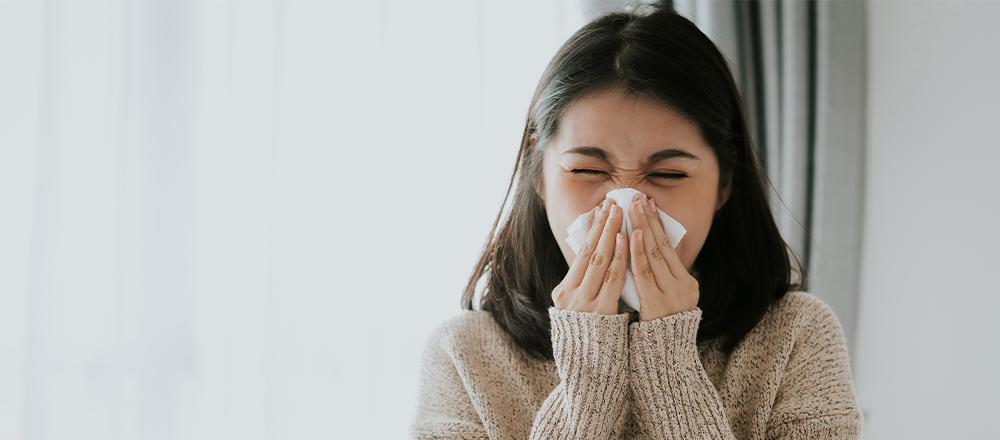Save Your Skin Now and Later
August 23, 2023By: Ciara Rojas-Pate
Categories: Prevention, Your Wellness

This time of the year is all about spending time outdoors and enjoying longer days of sunshine. Too much time outside in the sun may come at a price if you don’t protect your skin. According to the American Cancer Society, skin cancer is one of the most common cancers in the U.S., and too much time in the sun without ultraviolet (UV) ray protection increases someone’s risk of skin cancer.
UV rays are an invisible type of radiation that cause most skin cancers. While UV rays are strongest during the summer, they can reach your skin even on cloudy and cool days all year long. These rays can reflect off cement, sand, snow and water, increasing the short- and long-term damage they can do to your skin.
Take these precautions to save your skin:
- Apply sunscreen 30 minutes before going outside and reapply it every two hours and more often if you’re sweating or spending time in water.
- Check if any medications you take may boost your sun sensitivity.
- Choose to wear wide sunglasses to protect your eyes and surrounding skin.
- Limit your time in the sun to between 10 a.m.-2 p.m. when it’s at its brightest.
- Put on tightly woven clothing that covers as much skin as possible.
- Spread sunscreen wherever you have exposed skin, including on your ears, hands, neck, nose and tops of your feet.
- Use lip balm with sunscreen.
- Wear a hat with at least a 6-inch brim.
What’s the Big Deal About Sunscreen?
Along with other precautions, using sunscreen is one of the best ways to protect your skin from the sun’s harmful UV rays. According Centers for Disease Control and Prevention, everyone 6 months old and older should wear sunscreen all year long.
With so many options, it can be difficult to make the best choice for your skin. They all provide some level of what’s called a sun protection factor (SPF). SPF numbers indicate how well sunscreens protect your skin against sunburn.
There are two types of UV rays from the sun: UVA and UVB. UVA rays contribute to skin cancer and increase early signs of aging, like saggy skin and wrinkles. UVB rays also contribute to skin cancer, cause sunburn and damage skin cells.
When picking a sunscreen, consider the following:
- Ask your pediatrician or family doctor for sunscreen recommendations for your children.
- Check the expiration date. If the bottle doesn’t have one, it should be good for three years from the purchase date.
- Choose sunscreen that reads “broad spectrum” on the label; it will provide total protection from UVA and UVB rays.
- Read labels and follow the manufacturer's directions.
- Use at least an SPF of 30-50 for longer-lasting protection.
Warm weather attracts more people outside. Make sure when you and your family spend time out in the sun, you take precautions to protect your skin from short- and long-term damage. Speak with your primary care provider or a Meritas Health family medicine provider for more information on how to keep your skin healthy.
Explore More
Habits That Age You
Men’s Health: Skin Cancer Prevention and Detection
Summer Break Safety



